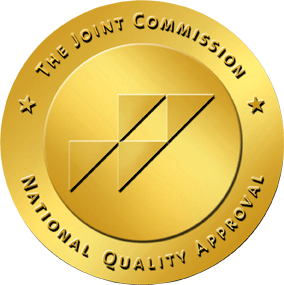Anxiety disorders often create a cycle of fear, avoidance, and emotional paralysis. These challenges affect many areas of life, from relationships and work to sleep and overall health. Fortunately, structured treatment options exist for those seeking relief. Among the most effective approaches is the Intensive Outpatient Program (IOP), which offers focused care without the need for hospitalization.
IOPs are especially helpful for individuals dealing with both anxiety and depression, providing a comprehensive and flexible pathway to recovery.

What Is an IOP and How Does It Support Anxiety and Depression?
To understand how IOPs help with anxiety and depression, it is important to recognize their unique structure. An IOP is a form of mental health treatment that offers clinical support through multiple weekly sessions. It allows individuals to receive high-quality care while maintaining daily responsibilities at home, work, or school.
The structure of an IOP typically includes:
- Individual psychotherapy sessions
- Group therapy
- Skills training
- Psychoeducation
- Psychiatric oversight when needed
This model allows clients to build consistency and stability without being removed from their environment. In cases of anxiety disorders, the regular therapeutic contact creates opportunities to break the cycles of fear, avoidance, and dysregulation that often characterize the condition.
The Unique Role of IOP in Anxiety Disorder Treatment
Each person’s experience with anxiety is unique. Some may struggle with overwhelming panic, while others face persistent social anxiety, health-related fears, or trauma-related symptoms. IOPs provide tailored care that meets individuals where they are, offering targeted interventions that build resilience and self-awareness.
Before detailing the core elements of an IOP, it is essential to highlight that this type of care blends various evidence-based modalities into a cohesive treatment plan. These often include:
- Cognitive Behavioral Therapy (CBT): Addresses anxious thought patterns and promotes realistic thinking.
- Dialectical Behavior Therapy (DBT): Teaches skills for emotion regulation, interpersonal effectiveness, and distress tolerance.
- Exposure Therapy: Provides structured exposure to feared situations or thoughts, helping reduce avoidance.
- Mindfulness Techniques: Ground the mind and body in the present moment, easing physical symptoms of anxiety.
- Psychoeducation: Increases understanding of anxiety and how to manage symptoms effectively.
The multi-layered approach makes IOP an ideal setting for those experiencing co-occurring anxiety and depression, which often require integrated care for meaningful improvement.
Benefits of Choosing an IOP for Anxiety and Depression
Anxiety and depression often interfere with the ability to function on a day-to-day basis. Choosing an IOP can offer a structured, empowering pathway out of this distress. Many individuals find that the routine, accountability, and therapeutic support foster long-term healing and growth.
Some key benefits include:
- Structured routine: Regular sessions provide consistency that reinforces healthy habits and cognitive change.
- Peer support: Group therapy creates a shared healing space and reduces isolation.
- Practical skill-building: Skills learned in therapy can be immediately applied to everyday situations.
- Therapeutic depth: Multiple sessions per week allow for deeper progress than once-weekly outpatient care.
- Clinical monitoring: Therapists and clinicians monitor symptoms to ensure appropriate care and make adjustments as needed.
This level of support makes IOP one of the most effective tools for anxiety disorder treatment in Florida, especially when symptoms have become difficult to manage alone.
Improving Lives Now: IOP for Anxiety and Depression in Miami
Improving Lives Now provides a thoughtfully designed IOP in Miami that addresses the unique needs of individuals experiencing anxiety, depression, or both. The program blends therapeutic expertise with flexibility, offering both in-person and virtual care options.
In addition to IOP, Improving Lives Now also offers:
- Anxiety & Depression Support in Miami: Community-focused support and recovery tools
- Individual Psychotherapy in Miami: Personalized, one-on-one therapy to explore specific emotional challenges
- Family Therapy: Strengthens support systems and helps loved ones understand anxiety symptoms
- Substance Abuse Group Therapy in Miami: Supports individuals with co-occurring anxiety and substance use issues
- Professional Life Coaching in Miami: Empowers clients to set and achieve life goals beyond treatment
To learn more about the IOP program and associated services, visit the Improving Lives Now IOP program page.
Using Teletherapy as Part of an Anxiety Treatment Plan
Not everyone can attend in-person therapy due to logistical barriers or social anxiety symptoms. Teletherapy provides an effective and accessible alternative. For those receiving Miami anxiety and depression support, the ability to connect with therapists from the comfort of home can reduce stress and promote consistency in care.
Improving Lives Now offers secure, HIPAA-compliant teletherapy services that can be incorporated into IOP or used as a standalone treatment. Benefits of this
Effective IOP for Anxiety and Depression Treatment in Miami
approach include:
- Greater scheduling flexibility
- Reduced transportation burdens
- Comfort of a familiar environment
- Continuity of care while traveling
Teletherapy can be particularly helpful for those with agoraphobia, social anxiety, or limited mobility, offering relief without added stress.

When Is IOP the Right Choice for Anxiety?
Many individuals wonder when it is time to pursue a more intensive level of care. Understanding the signs that indicate the need for IOP can help guide treatment decisions.
An IOP may be appropriate if:
- Symptoms of anxiety or panic occur frequently and disrupt daily functioning
- Traditional outpatient therapy has not been effective
- Support is needed after leaving a Partial Hospitalization Program (PHP)
- Depression is occurring alongside anxiety, complicating recovery
- A higher level of support is needed, but inpatient care is not required
Choosing IOP for anxiety and depression allows individuals to stay engaged in their lives while accessing meaningful, consistent mental health care.
From Panic to Peace: The Long-Term Value of IOP
Healing from anxiety requires time, patience, and a comprehensive plan. IOP offers the intensity needed to disrupt negative patterns and the flexibility to support daily life. Clients who participate in IOP programs often experience:
- Improved emotional regulation
- Healthier coping strategies
- Stronger interpersonal relationships
- Renewed confidence in managing stress
- Greater insight into the roots of their anxiety and depression
The path from panic to peace may begin with uncertainty, but lasting recovery is possible with the right guidance and structure.
Take the First Step Toward Peace and Healing
Begin Your Recovery with Improving Lives Now
Living with anxiety or depression can feel overwhelming. No one needs to face that journey alone. Improving Lives Now offers a comprehensive Intensive Outpatient Program in Miami that provides both structure and compassion. With experienced therapists, customized care plans, and flexible scheduling through teletherapy, help is available to anyone ready to start their healing process. Whether symptoms have become unmanageable or outpatient therapy no longer feels sufficient, the IOP program can …
To take the first step toward a calmer and healthier future, call (305) 280-1440 or visit ImprovingLivesNow.com to schedule a confidential appointment today.
Frequently Asked Questions
- How long does IOP treatment for anxiety typically last?
Most programs last 8 to 12 weeks, depending on individual progress and therapeutic goals. - Can I attend IOP while working or attending school?
Yes. The flexible scheduling of IOP allows individuals to participate while maintaining their responsibilities. - What therapies are included in an IOP for anxiety and depression?
Programs often include CBT, DBT, exposure therapy, mindfulness techniques, and group therapy. - Is IOP covered by insurance?
Many insurance plans offer coverage for IOP. Contact the Improving Lives Now team to verify benefits. - How can I tell if IOP is right for me?
A licensed mental health professional will assess your symptoms and needs to determine if IOP is appropriate.


